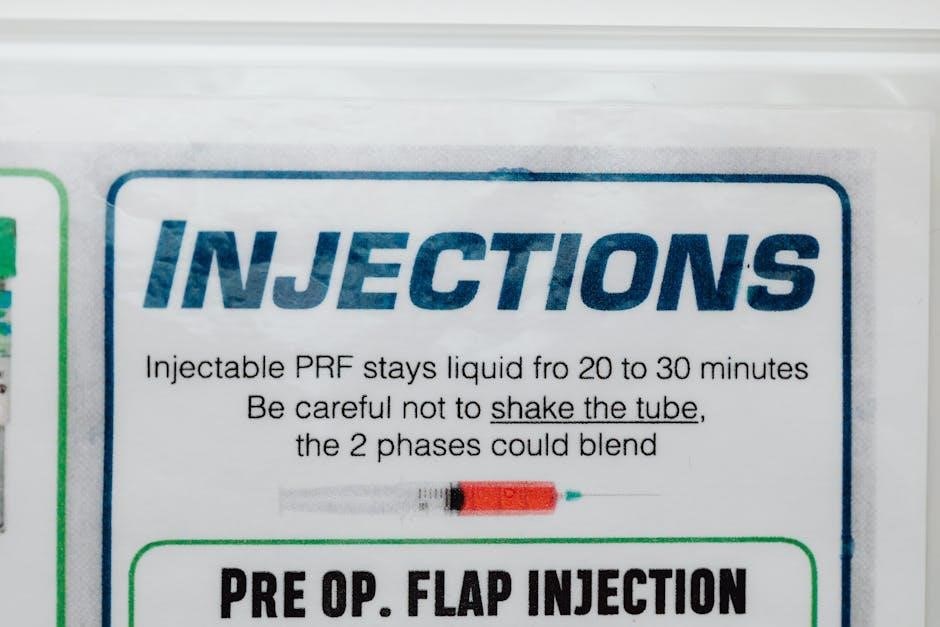bananagrams instructions
Bananagrams is a fast-paced, portable word game where players race to create interconnected word grids using letter tiles. It’s simple, fun, and perfect for all ages!
What is Bananagrams?
Bananagrams is a fast-paced, portable word game where players compete to create a grid of interconnected words using letter tiles. Unlike traditional board games, it doesn’t require a fixed board, allowing players to build their own word grids similar to crossword puzzles. The game is designed for 2 to 8 players and typically lasts 10 to 15 minutes, making it ideal for quick, fun sessions. With 144 letter tiles in a convenient pouch, Bananagrams is easy to carry and play anywhere. Its simplicity and speed make it accessible to people of all ages and skill levels. The goal is to be the first to use all your tiles and shout “Bananagrams!” to win, blending elements of Scrabble and Boggle for a unique and engaging experience.
Key Features of Bananagrams
Bananagrams stands out for its portability and ease of play. The game includes 144 letter tiles stored in a banana-shaped pouch, making it easy to carry and play anywhere. It supports 2 to 8 players, with games lasting 10 to 15 minutes. Unlike Scrabble, there’s no board or complicated scoring system—players build their own word grids. The game emphasizes speed and efficiency, with no turns, allowing players to race to use all their tiles first. Special actions like “Dump” and “Peel” add strategy, enabling tile swaps and forcing all players to draw more tiles. Its simplicity and quick gameplay make it suitable for all ages, while the competitive nature keeps it engaging for experienced players. The lack of individual tile scores simplifies the game, focusing purely on word-building speed and accuracy.
Why Play Bananagrams?
Bananagrams is a perfect blend of fun and mental challenge, making it an excellent choice for players of all ages. Its portability and simplicity allow it to be played anywhere, from family game nights to casual gatherings. The game is ideal for improving vocabulary, enhancing cognitive skills, and fostering quick thinking. It’s also a great way to bond with friends and family while enjoying some healthy competition. Unlike complex board games, Bananagrams has straightforward rules, making it accessible to newcomers. For experienced players, its fast-paced nature and strategic elements keep the game exciting. Whether you’re looking for a casual pastime or a dynamic party game, Bananagrams delivers endless entertainment while sharpening your word-building skills. It’s a game that’s as educational as it is enjoyable!

Setting Up the Game
Bananagrams is designed for 2-8 players, with tile distribution varying by player count. The game begins by splitting the tiles, ensuring everyone starts evenly!
Number of Players
Bananagrams is designed for 2 to 8 players, making it ideal for small or large groups. The number of players directly impacts the tile distribution, ensuring balanced gameplay. For 2-4 players, each receives 21 tiles, while 5-8 players get 15 tiles each. This flexibility allows the game to remain fast-paced and engaging regardless of the group size. The game’s portability and quick setup make it perfect for casual gatherings or family fun. The rules adapt seamlessly to any number of players, ensuring everyone can join in on the fun without compromising the game’s integrity or speed. Whether you’re playing with friends or family, Bananagrams is a versatile option for any setting.
Tile Distribution
In Bananagrams, the number of tiles each player receives depends on the number of participants. For 2-4 players, each player takes 21 tiles, while 5-8 players receive 15 tiles each. The total number of tiles in the game is 144. Players draw their tiles from the Bunch, a face-down pile of tiles placed in the center. Each player keeps their tiles face down in front of them until the game starts. The remaining tiles stay in the Bunch for future draws. This distribution ensures the game remains balanced and fast-paced, regardless of the number of players. The tile distribution is a key part of the setup, allowing everyone to begin the game on equal footing. The game’s portability and quick setup make it ideal for casual gatherings or family fun.
Preparing the Bunch
Preparing the Bunch is a crucial step in setting up Bananagrams. The Bunch refers to the central pile of 144 letter tiles, which are placed face down on a flat surface. To prepare the Bunch, shuffle all the tiles thoroughly and stack them neatly in the center of the playing area. This ensures that the tiles are evenly distributed and that the game starts fairly. The Bunch serves as the reservoir of tiles that players will draw from during the game. Once the Bunch is ready, players can take their initial tiles, and the game can begin. Proper preparation of the Bunch is essential for smooth gameplay and ensures that all players have access to the tiles they need. This step is simple but vital to the overall experience of playing Bananagrams.

Gameplay Mechanics
Bananagrams involves creating a grid of interconnected words using letter tiles. Players race to arrange their tiles into valid words, ensuring they fit together like a crossword puzzle.
Starting the Game
To begin, any player shouts “SPLIT!” and flips over their tiles. Each player then starts arranging their tiles into a grid of interconnected words, resembling a crossword puzzle.
Words must connect horizontally or vertically, reading left to right or top to bottom. Players can rearrange their tiles as needed to form valid connections.
The goal is to use all tiles efficiently, creating a cohesive word grid. The game progresses quickly, with no turns, as everyone works simultaneously to complete their grid first.
The first player to use all their tiles shouts “Peel!” prompting others to draw additional tiles, extending the challenge until the bunch is depleted.
Forming Words
In Bananagrams, players must create a grid of interconnected words using their letter tiles. Each word must be at least three letters long and connect to the existing grid either horizontally or vertically.
Words can be arranged in any direction but must read from left to right or top to bottom. Proper nouns, abbreviations, and words requiring a hyphen or apostrophe are not allowed.
Players can rearrange their tiles as needed to form valid connections. The grid can expand in any direction, allowing for creative word placements.
The challenge lies in using all tiles efficiently to complete the grid first. Valid words must be recognized by a standard dictionary, ensuring fair play and clear rules for all participants.
Using Special Actions: Dump and Peel
In Bananagrams, players can use two special actions to gain an advantage: Dump and Peel. The Dump action allows a player to discard one unwanted tile by shouting “Dump!” and replacing it with three new tiles from the Bunch. This can be especially useful when stuck with a tile that doesn’t fit into the grid.
The Peel action occurs when a player uses all their tiles and shouts “Peel!” This signals all players to take one additional tile from the Bunch. Peeling accelerates the game, forcing players to think quickly and adapt their strategies. Both actions add excitement and unpredictability, keeping the game fast-paced and competitive. Mastering these actions is key to winning and enhancing your gameplay experience.
Game Progression
The game progresses rapidly as players race to use their tiles. After the initial “Split!” command, players flip their tiles and start forming words. As players use their tiles, they can shout “Peel!” to force everyone, including themselves, to draw one more tile from the Bunch. This action speeds up the game and adds pressure to think quickly.
The game continues until there are fewer tiles left in the Bunch than the number of players. At this point, the game nears its end, and players must use their remaining tiles strategically. The first player to use all their tiles shouts “Bananas!” to declare victory. If no one has won by the time the Bunch is empty, the player with the most tiles left loses. The game’s progression is fast-paced and exciting, requiring quick thinking and efficient word-building skills to emerge victorious.

Strategies and Tips
Bananagrams requires quick thinking and strategic planning. Focus on forming high-value words early, rearranging tiles to maintain flexibility, and using “Dump” and “Peel” actions wisely to gain an advantage.
General Strategies
Mastering Bananagrams involves a mix of speed and strategy. Start by focusing on short, common words to quickly use up tiles. Keep your grid flexible to adapt as new words form. Pay attention to high-value letters like Z, Q, and X, as they can make or break your game. Practice word recognition skills to spot connections fast. Maintain a balanced grid to avoid running out of space. Use Dump and Peel wisely to manage your tiles effectively. Staying observant and adaptable will help you outpace competitors and secure victory.
Efficient Word Building
Efficient word building is crucial in Bananagrams. Start by focusing on short, common words to quickly use up tiles. Connect new words to existing ones, building off common letters to minimize dead ends. Use high-frequency letters like E, A, and O to maximize your options. Avoid holding onto tiles like Q or Z without a U, as they can be challenging to place. Rearranging your grid as you go allows for better flexibility and new connections. Prioritize using all tiles in your rack to shout “Bananas!” first. Practice recognizing word patterns to spot opportunities faster. By combining speed with smart placement, you can outpace your opponents and win the game efficiently.
Using Dump and Peel Effectively
Mastering the use of Dump and Peel is essential for success in Bananagrams. The Dump action allows you to discard one unwanted tile and draw three new ones, helping you overcome tricky letters. Use it wisely to eliminate tiles that hinder your word formation. Peel, on the other hand, is called when a player uses all their tiles, forcing everyone to draw one more tile. Timing Peel strategically can accelerate the game and pressure opponents. Official rules state that the first player to use all tiles may shout Peel, but they don’t have to, allowing others to catch up. However, peeling quickly is often advantageous, as it overwhelms opponents with more tiles. Balance these actions to maintain momentum and outpace your competitors effectively.
Maintaining Grid Flexibility
Maintaining grid flexibility is crucial for adapting to changing tile draws in Bananagrams. A flexible grid allows you to incorporate new tiles without disrupting your existing words. Start by building a central word and expand outward, ensuring connections remain open for future additions. Avoid creating isolated sections, as they limit your ability to add new words. Keep shorter words in reserve to fill gaps and adjust as needed. Regularly rearrange your grid to accommodate new tiles, ensuring that each addition strengthens your overall structure. This adaptability keeps your options open and maximizes your chances of using all tiles first, ultimately leading to victory. A rigid grid can hinder progress, so stay nimble and ready to pivot as the game unfolds.

Game Variations
Bananagrams offers exciting variations like Party Edition, WildTiles, and Solitaire Mode, each adding unique twists to the classic gameplay for endless fun and challenges.
Bananagrams Party Edition
Bananagrams Party Edition adds a lively twist to the classic game with 14 special Party Tiles. These tiles introduce fun and quirky challenges, such as standing on one leg, using only one hand, or stealing a tile from another player. Before the game begins, the Party Tiles are mixed into the Bunch, ensuring surprises throughout the gameplay. When a player draws a Party Tile, they must immediately perform the action listed on it, adding a layer of unpredictability and laughter to the game. Despite these twists, the core objective remains the same: be the first to use all your tiles and shout “Bananagrams!” This edition is perfect for groups looking to mix fun and strategy, making it a great choice for parties or family gatherings. The Party Tiles enhance the game’s dynamic, keeping players on their toes and ensuring no two games are ever the same.
Bananagrams WildTiles
Bananagrams WildTiles introduces a new layer of strategy with its Wild Tiles, which can represent any letter in the alphabet; These tiles function similarly to blank tiles in Scrabble, offering players flexibility and creativity. The game retains its fast-paced nature, but the Wild Tiles add an exciting challenge, as they can be used to complete words that might otherwise be impossible. Players must think strategically about when to use these versatile tiles to maximize their chances of winning. The inclusion of Wild Tiles makes the game more dynamic and unpredictable, appealing to both casual and competitive players. With this variation, Bananagrams remains a thrilling and engaging experience, perfect for enhancing vocabulary and quick thinking. The WildTiles edition is a must-try for fans seeking a fresh twist on the original game.
Solitaire Mode
Solitaire Mode offers a unique way to enjoy Bananagrams by playing alone. This variation is ideal for practicing and improving your word-building skills. In Solitaire Mode, the goal is to use all 21 of your tiles to create a complete word grid without any errors. Unlike the standard game, there is no peeling or dumping, making it a focused and calming experience. Players can take their time to arrange and rearrange tiles to form valid words, either horizontally or vertically. This mode is perfect for sharpening your vocabulary and strategic thinking. It’s also a great way to pass time while waiting, as it’s both challenging and relaxing. Solitaire Mode allows you to track your progress and aim for faster completion times, making it a valuable tool for mastering Bananagrams. The absence of competition adds a meditative aspect, letting you fully concentrate on word formation.

Ending the Game
The game ends when a player uses all their tiles and shouts “Bananas!” Others then verify their words. If valid, they win; if not, the game continues until a valid winner is declared.
When the Game Ends
The game concludes when a player successfully uses all their tiles and declares “Bananas!” This triggers the end of the round, and all other players must stop playing immediately. The remaining tiles in the Bunch are checked to ensure there are not enough for another round. If a player’s grid contains invalid words, they are disqualified, and the game may continue until a valid winner is determined. The objective is to be the first to exhaust your tiles and form a valid word grid, making the game fast-paced and exciting. Proper validation ensures fair play and a clear winner.
Declaring the Winner
The winner is declared when a player successfully uses all their tiles and shouts “Bananas!” At this point, the game pauses, and other players verify the validity of the winner’s word grid. If all words are correct, the player is crowned the winner. If any words are invalid, the player is disqualified, and the game continues. The winner must have a fully connected grid of valid words to claim victory. This system ensures fair play and maintains the game’s competitive spirit. The first player to achieve this goal is declared the winner and earns the title of “Top Banana.”
Checking Word Validity
When a player declares “Bananas!” and claims victory, other players must verify the validity of their word grid. All words must be correctly spelled, at least three letters long, and connected in a grid pattern. Proper nouns, abbreviations, and misspelled words are not allowed; If any word is deemed invalid, the player is called a “Rotten Banana” and is disqualified. The remaining players then continue the game. Valid words must be recognized by a standard dictionary, ensuring fair and consistent rules for all players. This verification step ensures that the winner has genuinely earned their victory, maintaining the integrity of the game.
Handling Disputes
Disputes in Bananagrams typically arise when a player’s word grid is challenged. If a player declares “Bananas!” and is suspected of having invalid words, others can call them out as a “Rotten Banana.” The group then examines the grid to verify the validity of each word. Words must be spelled correctly, at least three letters long, and formed in a connected grid. Proper nouns, abbreviations, and misspelled words are not allowed. If any word is deemed invalid, the player is disqualified, and the game continues without them. All words must adhere to standard dictionary rules to ensure fairness. This process ensures that only a player with a fully valid grid can claim victory, maintaining the game’s integrity and fun for everyone involved.

Additional Resources and Tips
Explore online resources for tips, tutorials, and game variations. Practice word-building skills and expand your vocabulary for a competitive edge in Bananagrams.
Online Resources
Enhance your Bananagrams experience with online resources! Visit YourDictionary for detailed guides and rules. The official Bananagrams website offers tips, game variations, and news. Explore forums and communities like BoardGameGeek for player discussions and strategies. Watch video tutorials on YouTube to master techniques. Additionally, websites like Amazon provide customer reviews and insights to help you understand the game better. These resources are perfect for beginners and seasoned players alike, ensuring you stay updated and improve your gameplay. Utilize these tools to refine your skills and enjoy the game even more!
Practice Methods
Mastering Bananagrams requires consistent practice! Start with solitaire games to hone your speed and word-building skills. Use flashcards to expand your vocabulary and recognize patterns. Set timers to simulate real-game pressure, fostering quick thinking. Practice rearranging letters to improve grid flexibility and efficiency. Play shorter games to focus on specific strategies, like using high-frequency letters or maximizing word connections. Review your grids post-game to identify mistakes and optimize future plays. Regular practice sharpens your ability to think critically and act swiftly, ensuring you become a formidable opponent. The more you play, the better you’ll become at spotting word opportunities and managing your tiles effectively!
Expanding Your Vocabulary
Expanding your vocabulary is key to mastering Bananagrams! Dedicate time to learning new words, focusing on short, high-frequency words that are commonly used in word games. Use a Scrabble dictionary or online resources to discover valid words and their spellings. Practice recognizing anagrams and word patterns to quickly identify potential plays. Read books, solve crosswords, or use word-building apps to sharpen your linguistic skills. Learning prefixes, suffixes, and word roots can also help you decode unfamiliar words. The more words you know, the faster you’ll spot opportunities during gameplay. Regularly reviewing and memorizing words will enhance your ability to form grids swiftly and efficiently, giving you a competitive edge in Bananagrams!
Bananagrams is a delightful, fast-paced word game perfect for all ages. Its portability and simplicity make it ideal for family fun or quick challenges anytime, anywhere!
Final Thoughts
Bananagrams offers a unique blend of speed, strategy, and creativity, making it a standout among word games. Its simplicity and portability ensure it’s accessible to everyone, while its fast-paced nature keeps players engaged and challenged. Whether you’re a casual gamer or a word enthusiast, Bananagrams delivers endless fun and mental stimulation. The game’s ability to enhance vocabulary, pattern recognition, and quick thinking makes it an excellent choice for players of all ages and skill levels. With its variations and adaptable rules, Bananagrams remains a timeless favorite, perfect for fostering creativity and healthy competition. It’s a must-try for anyone looking to sharpen their mind or enjoy quality time with friends and family.
Encouragement to Play
Jump into Bananagrams and experience the thrill of creating words at lightning speed! This game is perfect for anyone who loves words, puzzles, or just a good challenge. Its portability makes it easy to take anywhere, ensuring you’re never bored. Whether you’re playing with friends, family, or alone, Bananagrams is a great way to sharpen your mind and have fun. Don’t miss out on the excitement—grab the Bananagrams pouch and start building your word grid today. With every game, you’ll improve your vocabulary and strategic thinking, making it a rewarding activity for all ages. So, gather your group, shout “Split!,” and let the word-building race begin!